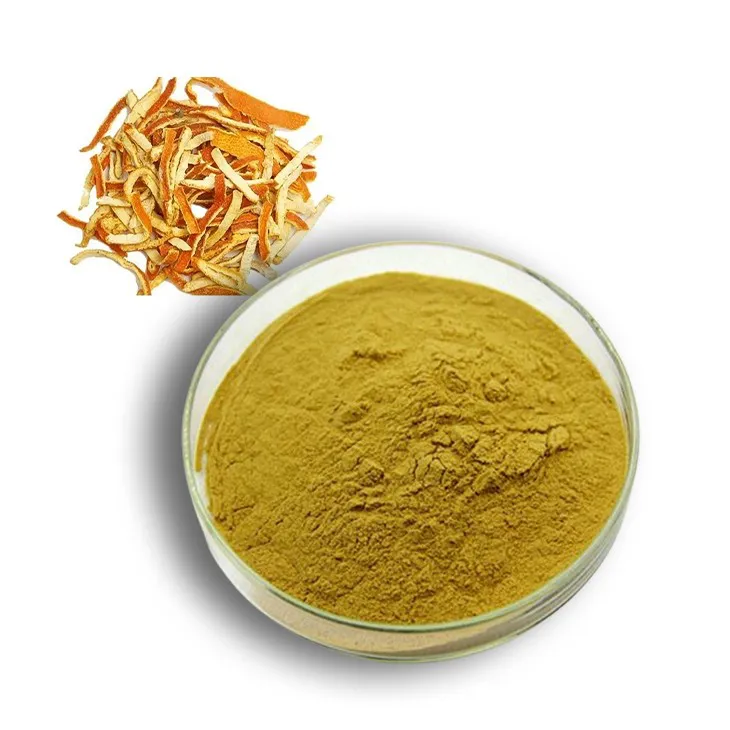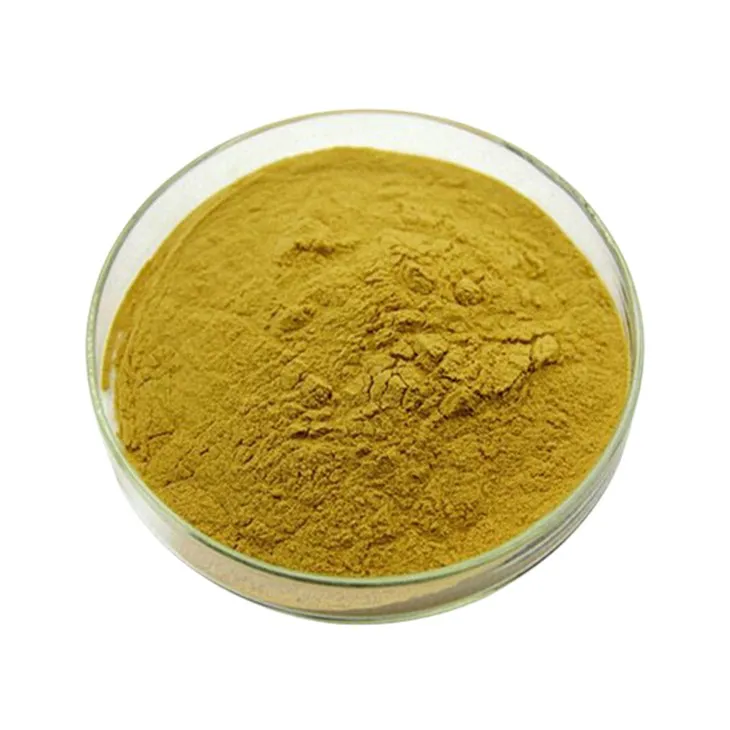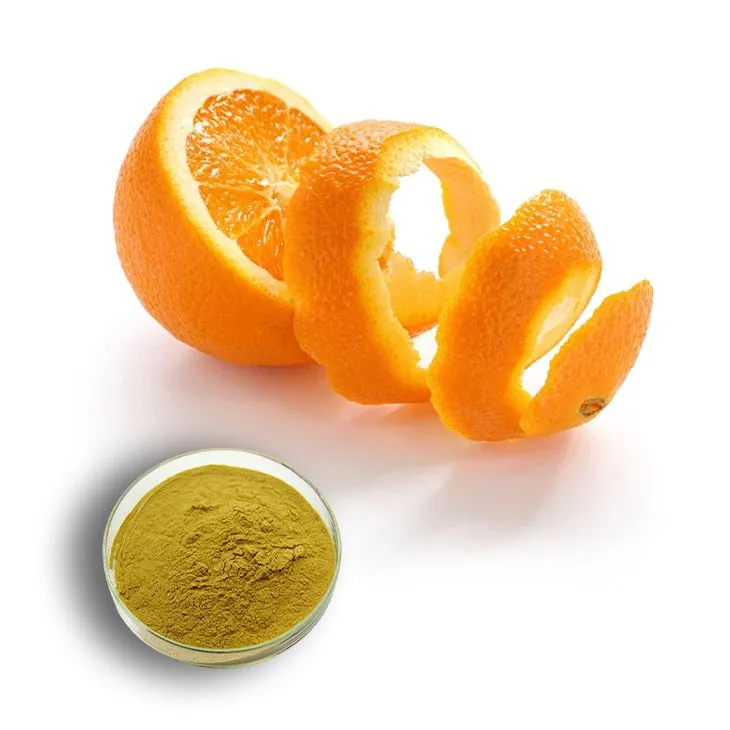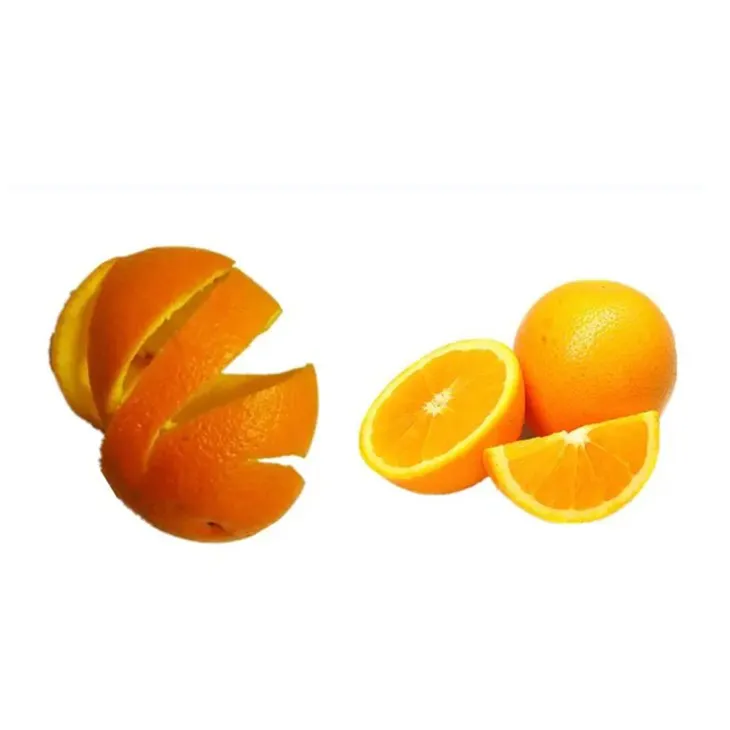- 0086-571-85302990
- sales@greenskybio.com
Bulk purchase of hesperidin.
2024-11-28

1. Introduction to Hesperidin
Hesperidin is a flavanone glycoside that has been the focus of much research in recent years due to its remarkable properties. It is naturally found in citrus fruits such as oranges, lemons, and grapefruits. This bioactive compound has shown great potential in various industries, including medicine, nutrition, and cosmetics.

2. Product Specifications
When considering a bulk purchase of Hesperidin, understanding the product specifications is crucial.
2.1 Purity Levels
Hesperidin products come in different purity levels. High - purity hesperidin is often required for more sophisticated applications in the pharmaceutical industry. For example, in the development of drugs for cardiovascular diseases, a high - purity form of hesperidin may be necessary to ensure the effectiveness and safety of the treatment. On the other hand, in the food and supplement industries, a slightly lower purity level may be acceptable while still providing the desired health benefits.
2.2 Solubility
The solubility of hesperidin can vary depending on its form. Some forms may be more soluble in water, while others are better suited for oil - based solutions. This is an important factor to consider, especially in the formulation of cosmetics and nutritional supplements. For instance, if a company is developing a water - based beverage supplement containing hesperidin, a water - soluble form of the compound would be preferred.
2.3 Particle Size
Particle size can also play a role in the performance of hesperidin in different applications. In the manufacturing of tablets or capsules in the pharmaceutical industry, a specific particle size may be required to ensure proper dissolution and absorption in the body. In cosmetics, a finer particle size may be desired for a smoother texture and better skin penetration.

3. Supplier Relationships
Establishing strong supplier relationships is a key aspect of bulk purchasing hesperidin.
3.1 Long - Term Partnerships
Forming long - term partnerships with reliable suppliers can bring several advantages. Firstly, it often leads to better pricing deals. Suppliers are more likely to offer discounts and favorable terms to customers with whom they have a long - standing relationship. For example, a company that regularly purchases large quantities of hesperidin may be able to negotiate a lower per - unit price over time. Secondly, long - term partnerships ensure a more stable supply. This is particularly important in industries where hesperidin is a critical ingredient, such as in the production of certain medications or high - end cosmetics.
3.2 Supplier Reputation
The reputation of the supplier is another crucial factor. A supplier with a good reputation is more likely to provide high - quality hesperidin. Reputation can be gauged by factors such as industry experience, customer reviews, and compliance with regulatory standards. For instance, a supplier that has been in the business for many years and has a track record of delivering consistent quality products is a more reliable choice. Additionally, suppliers who are compliant with international quality and safety standards, such as Good Manufacturing Practice (GMP) standards, are preferred as they can ensure the integrity of the hesperidin product.
3.3 Supplier Capabilities
Supplier capabilities also need to be considered. This includes their production capacity, ability to meet large - scale orders, and their R & D capabilities. A supplier with a large production capacity can better handle bulk orders without delays. Moreover, suppliers with strong R & D capabilities may be able to offer custom - made hesperidin products or improved formulations, which can be a competitive advantage for the purchasing company.

4. The Global Market for Hesperidin
The global market for hesperidin is a complex and dynamic landscape.
4.1 Regional Production Capabilities
Different regions around the world have varying production capabilities for hesperidin. For example, some countries in Asia, such as China and India, have large citrus - growing regions, which provide a natural advantage for the production of hesperidin. These regions can often produce hesperidin in large quantities due to the availability of raw materials. In contrast, some European countries may focus more on the high - value - added processing of hesperidin, leveraging their advanced technology and research facilities.
4.2 Quality Levels
Quality levels of hesperidin can also differ across regions. In some regions, strict regulatory frameworks ensure high - quality production, while in others, the quality may be more variable. For instance, in the United States and the European Union, there are stringent regulations governing the extraction, processing, and quality control of hesperidin used in food, pharmaceutical, and cosmetic products. Companies need to be aware of these regional differences in quality when making bulk purchases.
4.3 Market Trends
The global market for hesperidin is also influenced by various market trends. One significant trend is the increasing demand for natural and plant - based ingredients in the food, pharmaceutical, and cosmetic industries. This has led to a growing market for hesperidin as a natural bioactive compound. Another trend is the focus on research and development to discover new applications and improve the extraction and purification processes of hesperidin.

5. Researching the Origin of Hesperidin
Researching the origin of hesperidin is essential for a successful bulk purchase.
5.1 Ensuring Quality
The origin of hesperidin can have a significant impact on its quality. For example, hesperidin sourced from organically grown citrus fruits may be of higher quality as it is less likely to be contaminated with pesticides or other chemicals. Additionally, the climate and soil conditions in the region of origin can influence the composition and potency of hesperidin. By researching the origin, companies can ensure that they are purchasing high - quality hesperidin that meets their specific requirements.
5.2 Cost - Effectiveness
Understanding the origin of hesperidin can also contribute to cost - effectiveness. Different regions may have different production costs, which can be reflected in the price of hesperidin. For instance, if a region has lower labor and raw material costs, the hesperidin produced there may be more competitively priced. By researching the origin, companies can identify suppliers who can offer high - quality hesperidin at a more affordable price.
6. Environmental and Sustainable Factors
As environmental and sustainability concerns grow, they are becoming increasingly important in the bulk purchase of hesperidin.
6.1 Sustainable Extraction Methods
Some suppliers use sustainable extraction methods for hesperidin. These methods aim to minimize the impact on the environment while still obtaining the bioactive compound. For example, some extraction processes may use renewable energy sources or reduce waste generation. By purchasing hesperidin from suppliers who use sustainable extraction methods, companies can contribute to environmental protection and also enhance their corporate social responsibility image.
6.2 Sustainable Production Practices
In addition to extraction, sustainable production practices are also important. This includes aspects such as responsible land use, water conservation, and fair labor practices. Suppliers who follow sustainable production practices are more likely to be in line with the growing consumer demand for environmentally and socially responsible products. For example, a company that is committed to sustainability may choose to purchase hesperidin from a supplier who ensures that the citrus growers are paid fair wages and that the land is managed in an environmentally friendly manner.
7. Conclusion
In conclusion, a bulk purchase of hesperidin is a complex process that requires careful consideration of multiple factors. Product specifications, supplier relationships, the global market, the origin of the product, and environmental and sustainable factors all play important roles. By thoroughly evaluating these aspects, companies can make informed decisions and ensure a successful bulk purchase of hesperidin that meets their business needs while also being cost - effective and environmentally responsible.
FAQ:
What are the different grades of hesperidin?
There are typically different purity levels and quality grades of hesperidin. High - grade hesperidin usually has a higher purity, with fewer impurities and better bioactivity. Lower - grade hesperidin may contain more contaminants or have a lower concentration of the active compound. The grade selection depends on the specific application. For example, in pharmaceutical applications, a higher - grade hesperidin with strict quality control is often required, while in some cosmetic or food supplement applications, a slightly lower - grade but cost - effective option might be considered.
How can one find reliable suppliers for hesperidin?
To find reliable suppliers of hesperidin, several methods can be used. Firstly, industry trade shows and exhibitions related to natural products, pharmaceuticals, or nutraceuticals are good places to start. Here, you can meet suppliers face - to - face, assess their product samples, and learn about their production processes. Secondly, online platforms that specialize in chemical and bioactive compound suppliers can be searched. However, it's important to check their reviews, certifications, and business history. Thirdly, asking for recommendations from industry peers or professional associations in the relevant fields can also lead to reliable suppliers.
What are the main production regions of hesperidin?
Hesperidin is produced in various regions around the world. Some of the major production areas include countries with a large citrus fruit industry, such as Spain, Italy, and China. These countries have abundant citrus resources, which are the main raw materials for hesperidin extraction. In Spain and Italy, the long - standing citrus cultivation traditions and advanced extraction technologies contribute to the production of high - quality hesperidin. In China, the large - scale citrus plantations and continuous development of extraction techniques also make it a significant producer in the global hesperidin market.
Why are sustainable factors important in hesperidin purchase?
Sustainable factors are important in hesperidin purchase for several reasons. Firstly, from an environmental perspective, sustainable extraction and production methods help to protect the natural resources, such as citrus orchards. This ensures the long - term availability of raw materials for hesperidin production. Secondly, for a company's public image, purchasing from sustainable suppliers shows the company's commitment to environmental protection and corporate social responsibility. This can enhance the company's brand value and reputation among consumers who are increasingly concerned about sustainability issues.
How to ensure the quality of hesperidin during batch purchase?
During batch purchase, to ensure the quality of hesperidin, multiple steps can be taken. Firstly, request detailed product specifications from the supplier, including purity, solubility, and other physical and chemical properties. Secondly, ask for certificates of analysis from independent laboratories, which can verify the quality of the product. Thirdly, conduct small - scale tests or trials of the hesperidin sample before making a large - batch purchase. This can help to detect any potential quality issues early on.
Related literature
- Hesperidin: Properties, Applications, and Analysis"
- "The Global Market of Hesperidin: Production and Quality"
- "Sustainable Production of Bioactive Compounds: The Case of Hesperidin"
- ▶ Hesperidin
- ▶ citrus bioflavonoids
- ▶ plant extract
- ▶ lycopene
- ▶ Diosmin
- ▶ Grape seed extract
- ▶ Sea buckthorn Juice Powder
- ▶ Beetroot powder
- ▶ Hops Extract
- ▶ Artichoke Extract
- ▶ Reishi mushroom extract
- ▶ Astaxanthin
- ▶ Green Tea Extract
- ▶ Curcumin Extract
- ▶ Horse Chestnut Extract
- ▶ Other Problems
- ▶ Boswellia Serrata Extract
- ▶ Resveratrol Extract
- ▶ Marigold Extract
- ▶ Grape Leaf Extract
- ▶ blog3
- ▶ blog4
-
Certified organic aged garlic extract.
2024-11-28
-
Active components in yam extract.
2024-11-28
-
Extraction process of stevia extract.
2024-11-28
-
Hesperidin
2024-11-28
-
Phyllanthus Emblica Extract
2024-11-28
-
Genistein
2024-11-28
-
Gynostemma pentaphyllum extract
2024-11-28
-
Panax Ginseng Leaf Extract
2024-11-28
-
Lemon Balm Extract
2024-11-28
-
Hops Extract
2024-11-28
-
Kidney Bean Extract
2024-11-28
-
Scutellaria Extract
2024-11-28
-
Mango flavored powder
2024-11-28




















